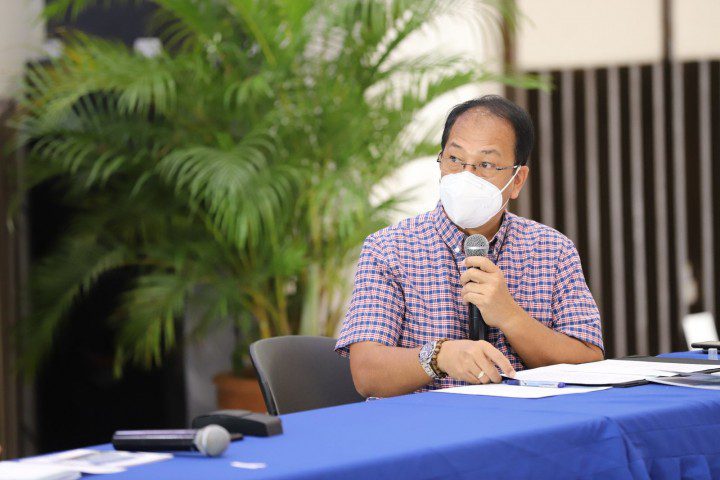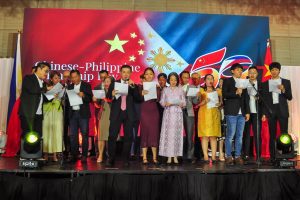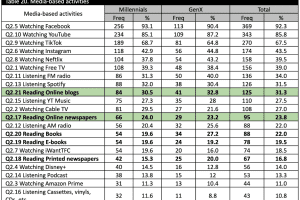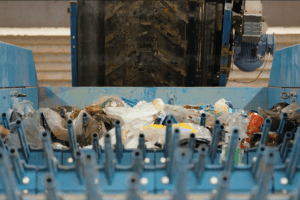National Task Force against COVID 19 Chief Implementer and vaccine czar Sec. Carlito Galvez Jr underscored the importance of collaboration between the government and private sector in the implementation of the national immunization program.
Galvez likewise stressed the need for the country to prepare for the next pandemic, particularly in the areas of vaccine security and self-sufficiency, during the Vaccine Summit: Equitable Distribution and Safety held on Friday, April 30.
Organized by the Philippine Chamber of Commerce and Industry (PCCI) and the International Chamber of Commerce (ICC), the summit was participated in by representatives of the private sector, multilateral partners, and foreign dignitaries.
Galvez pointed out that through the support of private firms and local government units, the Philippines was “able to gain access to larger vaccine volume from various manufacturers at lower prices” and secured at least 148 million doses for this year.
He attributed this milestone to the private sector and LGU’s support to the top-up funding mechanism of the national government.
This procurement strategy, Galvez said, allowed the national government to pool resources, negotiate for lower prices, and obtain larger volumes from the different vaccine makers.
He noted that the signing of multiple tripartite agreements between the national government, private companies, LGUs, and vaccine manufacturers was instrumental in achieving these objectives .
As of April, the country has finalized five contracts with various vaccine makers. Three of these contracts will allow LGUs and the private sector to procure vaccines from Moderna, Novavax, and AstraZeneca.
Out of the 20 million doses of Moderna vaccines allocated for the Philippines, seven million were purchased by the private sector.
Meanwhile, Novavax has guaranteed 30 million doses for the country, 15 million doses of which are allotted for LGUs and private firms.
On the other hand, all of the 17 million AstraZeneca vaccine doses were procured by LGUs across the country and over 200 private companies.
“We thank the members of the PCCI, ICCP, all private establishments, as well as various LGUs for partnering with the national government, and continuously working with us during this difficult period,” Galvez said.
ICC Secretary General John Denton shared the view of Galvez on the need for continuous collaboration between the government and private institutions.
“Vaccine distribution is an international challenge that requires global participation and global cooperation and global collaboration,” Denton said.
Meanwhile, PCCI President Ambassador Benedicto Yujuico committed the business community’s continued support to the government in its fight against COVID 19, especially in finding ways to help Filipino entrepreneurs and communities through programs and projects.
“We will continue to be partners of government and will do whatever is necessary until such time that this virus has been overcome and everyone can return to normal life,” Yujuico said.
Preparing for the next pandemic through partnerships
In his presentation, Galvez also outlined the government’s pandemic exit strategy, which it plans to carry out by 2022.
Under this strategy, the Philippines will begin to work on building its vaccine self-sufficiency by actively collaborating with private pharmaceutical companies with the goal of eliminating COVID-19, as well as accelerating the country’s economic recovery.
“We will partner with domestic and international pharmaceutical companies to develop our nation’s capacity to manufacture our own vaccines,” said Galvez.
Denton likewise pointed out that “the innovation of the private sector can never be underestimated” and “has led to scientific advances in record time, while highlighting “the speed with which these vaccines have been delivered.”
The vaccine czar said the Philippines will continue to strengthen its relations with different vaccine-producing countries such as India, Russia, and China as well as western countries in order to achieve its goal of achieving vaccine self-sufficiency.
“We envision self-sufficiency and readiness for the next pandemic with the modernization and integration of our health care system in order to completely bridge our country from the valley of death from various fatal diseases,” Galvez said. (National Task Force against COVID-19)












